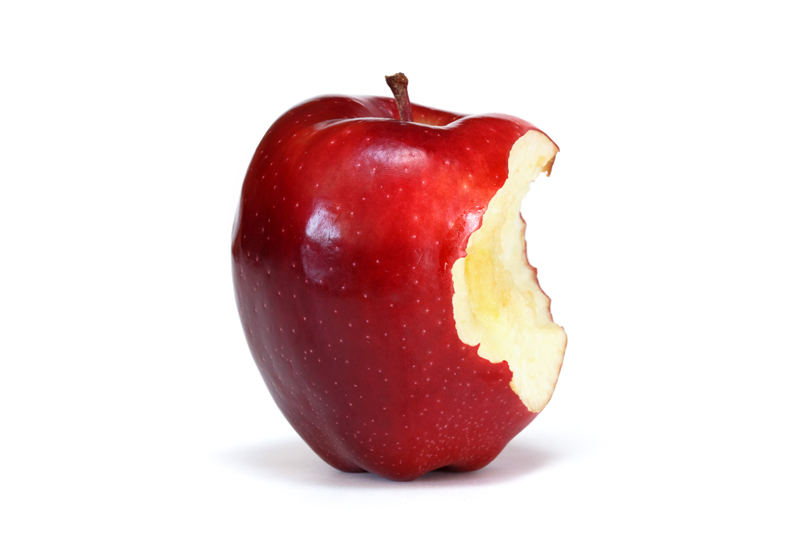Fruits And Vegetables

Fruits and vegetables are a major weapon against disease and illness from the common cold to cancer something that natural healers have known for decades. Researchers are now acknowledging this fact. Studies have also shown that even small to moderate amounts of fruits and vegetables can make a noticeable difference in one’s health.
Each of us has the opportunity to take control and improve are own health. You already know that diet plays an important role in maintaining good health. Scientific research shows that if you regularly eat lots of fruit and vegetables you have a lower risk of Type 2 diabetes, Stroke, Cancer (some forms), Heart disease, High blood pressure. Just by eating strawberries, spinach, broccoli, and yams, you can boost your antioxidant level, and strengthen your immune system, to fight off infectious diseases.
The recommended amount of fruit and vegetables a day is five to nine servings. However, the average person consumes less than one serving daily. If the simple fact that fruit and vegetables are a powerful preventive medicine in preventing chronic disease in the future doesn't get you to eat more fruits and vegetables today, then you might want to consider the immediate health benefits. If you just add five servings a day, it's more than likely you will have more energy, look and feel a whole lot better, and you'll find it easier to maintain or lose weight. Not a bad deal when you consider the benefits.
Our daily diet should include a wide variety of fruit and vegetables, particularly of different colors. There are so many fruits and vegetables to choose from. Try adding berries or sliced bananas to your cereal or have a half of grapefruit, for dessert or for a snack eat dried apricots, raisins or dates. Fruits and vegetables also taste great with a dip or dressing try low-fat yogurt, applesauce or pudding. Add raw broccoli, red and green peppers, or cauliflower to your salads. Put a bowl of fruit on the table keep precut carrot and celery sticks in a clear container in the refrigerator. Always keep fruits and vegetables visible it will encourage you and your family to eat them.
Vegetables high in antioxidants and nutrients are asparagus, broccoli, Brussels sprouts, carrots, cauliflower, red peppers, squash, beets, carrots, tomatoes, onions, and garlic. Aim for dark-green, deep-yellow and red vegetables. The more variety, the better!
Fruits high in antioxidants and nutrients are apples, apricots, bananas, blueberries, cantaloupe, cherries, kiwifruits, oranges, peaches, and pink grapefruits. Again, aim for deep-colored fruits and plenty of variety
Blue/Purple (blueberries, purple figs, grapes, eggplant, plums, purple cabbage, and raisins) Health Benefits: a lower risk of some cancers, aids in memory function, and healthy aging.
Green (avocados, spinach, broccoli, limes, green peppers, honeydew, green apples and green grapes) Health Benefits: a lower risk of some cancers, vision health, and strong bones and teeth.
White (onions, bananas, garlic, ginger, mushrooms, white corn, cauliflower, and dates) Health Benefits: healthy heart, and a lower risk of some cancers.
Yellow/Orange (oranges, yellow and orange bell peppers, apricots, grapefruit, carrots, lemons, and pineapple) Health Benefits: healthy heart, vision health, improved immune system, and a lower risk of some cancers.
Red (strawberries, red bell peppers, cranberries, radishes, red onions, beets, and pink watermelon) Health Benefits: healthy Heart, improved memory function, and a lower risk of some cancers.
Having the knowledge that eating fresh fruits and vegetables can put a stop to certain disease, What more could you ask for? However, what if you have a chronic illness? If that is the case then more than ever you need to add more fruits and vegetables to your daily diet. Fruits and vegetables can be your best non-prescription healing medicine to improve your over all health.
Each of us has the opportunity to take control and improve are own health. You already know that diet plays an important role in maintaining good health. Scientific research shows that if you regularly eat lots of fruit and vegetables you have a lower risk of Type 2 diabetes, Stroke, Cancer (some forms), Heart disease, High blood pressure. Just by eating strawberries, spinach, broccoli, and yams, you can boost your antioxidant level, and strengthen your immune system, to fight off infectious diseases.
The recommended amount of fruit and vegetables a day is five to nine servings. However, the average person consumes less than one serving daily. If the simple fact that fruit and vegetables are a powerful preventive medicine in preventing chronic disease in the future doesn't get you to eat more fruits and vegetables today, then you might want to consider the immediate health benefits. If you just add five servings a day, it's more than likely you will have more energy, look and feel a whole lot better, and you'll find it easier to maintain or lose weight. Not a bad deal when you consider the benefits.
Our daily diet should include a wide variety of fruit and vegetables, particularly of different colors. There are so many fruits and vegetables to choose from. Try adding berries or sliced bananas to your cereal or have a half of grapefruit, for dessert or for a snack eat dried apricots, raisins or dates. Fruits and vegetables also taste great with a dip or dressing try low-fat yogurt, applesauce or pudding. Add raw broccoli, red and green peppers, or cauliflower to your salads. Put a bowl of fruit on the table keep precut carrot and celery sticks in a clear container in the refrigerator. Always keep fruits and vegetables visible it will encourage you and your family to eat them.
Vegetables high in antioxidants and nutrients are asparagus, broccoli, Brussels sprouts, carrots, cauliflower, red peppers, squash, beets, carrots, tomatoes, onions, and garlic. Aim for dark-green, deep-yellow and red vegetables. The more variety, the better!
Fruits high in antioxidants and nutrients are apples, apricots, bananas, blueberries, cantaloupe, cherries, kiwifruits, oranges, peaches, and pink grapefruits. Again, aim for deep-colored fruits and plenty of variety
Blue/Purple (blueberries, purple figs, grapes, eggplant, plums, purple cabbage, and raisins) Health Benefits: a lower risk of some cancers, aids in memory function, and healthy aging.
Green (avocados, spinach, broccoli, limes, green peppers, honeydew, green apples and green grapes) Health Benefits: a lower risk of some cancers, vision health, and strong bones and teeth.
White (onions, bananas, garlic, ginger, mushrooms, white corn, cauliflower, and dates) Health Benefits: healthy heart, and a lower risk of some cancers.
Yellow/Orange (oranges, yellow and orange bell peppers, apricots, grapefruit, carrots, lemons, and pineapple) Health Benefits: healthy heart, vision health, improved immune system, and a lower risk of some cancers.
Red (strawberries, red bell peppers, cranberries, radishes, red onions, beets, and pink watermelon) Health Benefits: healthy Heart, improved memory function, and a lower risk of some cancers.
Having the knowledge that eating fresh fruits and vegetables can put a stop to certain disease, What more could you ask for? However, what if you have a chronic illness? If that is the case then more than ever you need to add more fruits and vegetables to your daily diet. Fruits and vegetables can be your best non-prescription healing medicine to improve your over all health.
You Should Also Read:
Fruit/Vegetable Nutrition Facts
ACS Guidelines for Eating Well
Articles on Fruits and Vegetables

Related Articles
Editor's Picks Articles
Top Ten Articles
Previous Features
Site Map
Content copyright © 2023 by Victoria Abreo. All rights reserved.
This content was written by Victoria Abreo. If you wish to use this content in any manner, you need written permission. Contact Victoria Abreo for details.



